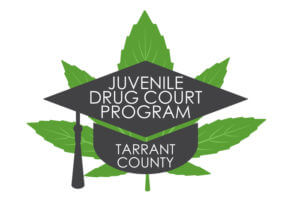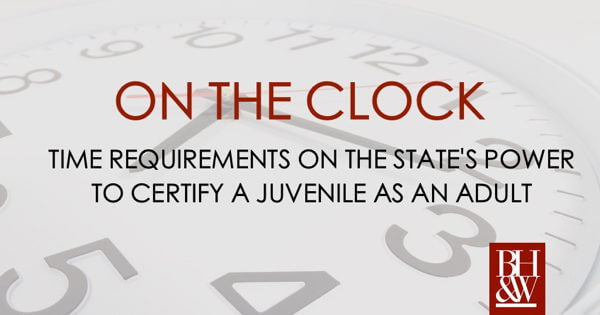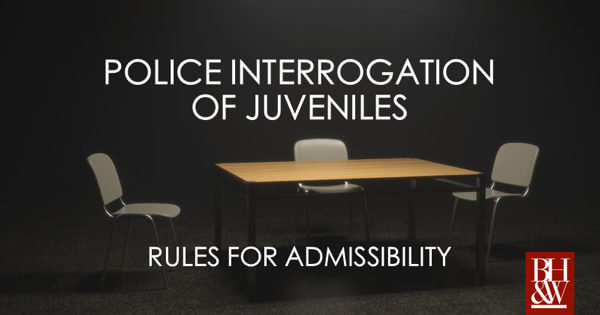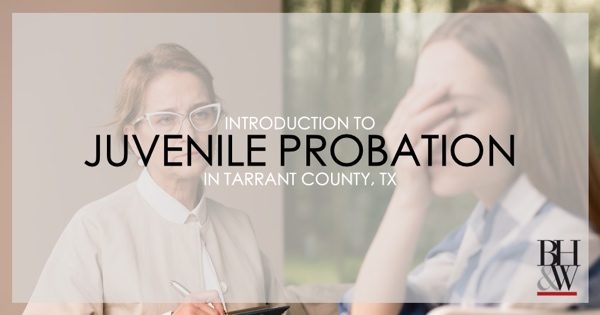 Last week I wrote about things that every parent needs to know about kids and drugs. Today, I want to share with you a valuable resource to use if your child has gotten involved in drugs in Tarrant County. If your teenager has been charged in juvenile court with their first drug offense, you need to ask about the Tarrant County Juvenile Drug Court Program.
Last week I wrote about things that every parent needs to know about kids and drugs. Today, I want to share with you a valuable resource to use if your child has gotten involved in drugs in Tarrant County. If your teenager has been charged in juvenile court with their first drug offense, you need to ask about the Tarrant County Juvenile Drug Court Program.
The Basics of the Program
The Drug Court Program in Tarrant County was launched in 1999. It was the first of its kind in the State of Texas. It is a voluntary program aimed at first time juvenile drug offenders. According to Tom Zaback, a Tarrant County juvenile probation officer and the supervisor of the program, 80% of the participants in Drug Court graduate the program successfully.
Juveniles in the program, and their parents, are required to commit a lot to Drug Court. This commitment to the program leads to a commitment to change, which contributes significantly to juveniles graduating from Drug Court and kicking their drug problem. While in Drug Court, which lasts for six months, juveniles and their parents will work closely with a probation officer and drug counselors in classes and groups that are tailored to meet the individual needs of each child.
The Process of the Juvenile Drug Court Program
Cases are screened automatically by the probation officers assigned to Drug Court to determine kids who may be appropriate for the program. However, if your child has been charged with a drug offense and you feel this may be a good option for him, you can ask your intake probation officer about being considered for inclusion in Drug Court.
Once a juvenile has been identified for the program, one of the Drug Court probation officers will schedule an intake with that child and his parents. During the intake appointment, the probation officer will explain the requirements of the program, get a social history from the family, and have the juvenile to take a drug test. The juvenile must also submit to a drug assessment during the screening process. This assessment will help to determine the level of that child’s drug problem and the recommended level of treatment needed. At the end of the screening, the probation officer will make a recommendation about whether that child should be allowed into Drug Court.
If a juvenile is recommended for Drug Court, the case is then sent to the Tarrant County District Attorney’s Office Juvenile Unit for prosecution. The prosecutor will review the case and file the charges with the court. The Tarrant County Juvenile Court will then schedule the case for a drug court hearing. At that hearing, the juvenile must stipulate, or admit, to the charges. The judge will enter a judgment withheld, which means that the judge will note that there is sufficient evidence to adjudicate the juvenile delinquent (or find him guilty), but will not, at that time, actually adjudicate the juvenile. The judge will then order him into the Drug Court Program.
Every juvenile in the program must come back to court for a judicial review at the 3-month mark and again at the end of the program. The purpose of this judicial review is for the judge to monitor the child’s progress in Drug Court. At the end of the six-month program, if the child has successfully completed all requirements, the judge will deny the prosecutor’s petition and order the child’s offense record to be sealed immediately. This is a huge benefit to the child because it means that he can honestly say to anyone asking in the future that he has not been charged or adjudicated for a drug offense. Sealing one’s record effectively erases it from existence.
The Requirements of the Tarrant County Juvenile Drug Court Program
As I mentioned above, while in Drug Court, a kid will be required to work with a probation officer and drug counselor to resolve any problems that he is facing with regards to drugs. There are other conditions that a juvenile in the program is required to follow, which are similar to the conditions of traditional probation. Some of these conditions are: no drugs, go to school, be honest, and attend treatment regularly. If a kid violates the terms of his Drug Court agreement, a progress report will be sent to the judge. If it is determined that a juvenile has violated the terms of the program to the extent that he is kicked out, he will be required to return to court for a disposition hearing. At this court hearing, the judge will enter a finding that the juvenile is adjudicated of the drug offense and then proceed to determine the appropriate punishment, or disposition, for the drug violation. This may result in the child being placed on traditional probation, being ordered to attend an in-patient drug treatment program, or in extreme cases, being sentenced to the Texas Juvenile Justice Department. Additionally, a driver’s license suspension will usually be ordered.
The Tarrant County Juvenile Drug Court is a wonderful program designed to help kids who are charged with a first-time drug offense. Its purpose is to help juveniles work through their drug problems while giving them a second chance to keep their juvenile record intact. The program is very successful. It requires a high level of commitment from the juveniles and parents who are in it, but that commitment is rewarded with a true change in the behavior, attitude, and lifestyle of that child. If your child is struggling with drugs, it is worth asking whether the Tarrant County Drug Court Program can help.










